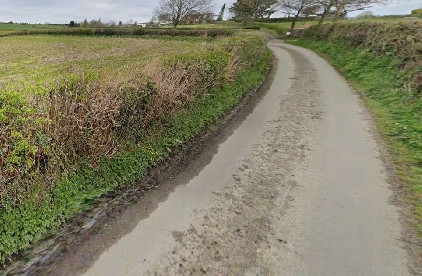
Herefordshire’s newly created Citizens’ Climate Assembly has wholeheartedly backed a slew of recommendations for how the county should meet the challenges of climate change.
Its 35 recommendations, which the county council must now consider, range from a new wildlife-friendly Jubilee Forest for the county, to fossil fuel-free public transport, to sustainability standards for new buildings.
The 48 assembly members were selected late last year as a representative cross-section of the county’s population.
Last month, 41 of them met in online sessions for the first time to hear expert opinion on a range of topics, and to consider how life in the county should be made more sustainable.
Members were given two days to vote on each of the 35 recommendations put forward, ranking them from “Strongly Agree” to “Strongly Disagree”, along with “Don’t Mind/Unsure” and “Abstain” options.
In the event, at least two-thirds of members “agreed or “strongly agreed” with each recommendation, and over one-third “strongly agreed” with each.
No more than 16 per cent (one in six) of members “disagreed” or “strongly disagreed” with any of the 35 recommendations, and over half of the 35 drew no disagreement at all.
The recommendations, some of which overlap, break down as follows:
Food, Farming and Land Use
- Create a publicly accessible Jubilee Forest across Herefordshire within ten years
- Encourage people to purchase local sustainable food
- Schools to be encouraged to engage with food, farming and sustainability locally
- Free expert consultation for farmers on sustainable methods and reducing emissions
- Incentives for rewilding and increasing biodiversity, and access to expertise on this
- A marketing and communication campaign to encourage environmentally aware behaviour, including on food waste
- The planning process to encourage landowners and developers to promote biodiversity
- Government to be lobbied to include climate action in the national curriculum; to include environmental impact in procurement rules for school, college and hospital catering; and for subsidies for rewilding and tree planting along riverbanks.
Transport
- Herefordshire to have a seamless integrated transport service enabling all alternatives to car use by 2025
- Introduce measures to reduce road congestion in urban areas, including low-emission zones, preferential areas for non-car passengers, 20mph zones, and shuttle buses into centres
- For all public transport, taxi services and publicly owned transport to cease dependence on fossil fuels by 2024
- Help residents access affordable electric travel options, including electric vehicle car pools, incentivising more charging points, and reducing non-electric vehicle parking
- Improve school transport, with better bus services for school catchment areas
- Expand cycling and walking paths, and publish accurate maps of these networks
- Employees to be consulted about company transport schemes and incentives to use them
- Prioritise connecting rural villages and town centres to key locations with innovative and safe “last mile” travel options by 2025
- Develop a strategy to support vehicle bio-fuels from food and farming waste.
Buildings and development
- All new industrial and residential developments to avoid car dependency with immediate effect, with designs to prioritise sustainability in transport impact
- Require all new developments to meet sustainability standards, including on building materials
- Training and advice on sustainable materials and practices to be made available to all
- Incentivise use, and increase supply, of local sustainable materials
- Partnerships to advise on retrofitting existing buildings for improved environmental performance
- For sustainable community heating and cooling solutions to be considered in larger developments
- Expos and roadshows to showcase new materials and approaches to environmentally friendly building.
Cross-cutting
- Greater involvement of young people in decision making.
The council’s Cabinet will discuss this Thursday how these are to be taken forward.
Cabinet member environment and economy Coun Ellie Chowns said: “The recommendations will directly influence what we do and our decisions on policy and priorities.
“We intend to put an additional £1.3 million into local climate action over the next year, and the findings from the assembly will help shape decisions on what this money should be spent on.”

 Revealed: The main roads in Herefordshire prioritised for repairs
Revealed: The main roads in Herefordshire prioritised for repairs
 Villagers fustrated over lack of road repairs
Villagers fustrated over lack of road repairs
 New Food and Drink group launched at online event
New Food and Drink group launched at online event
